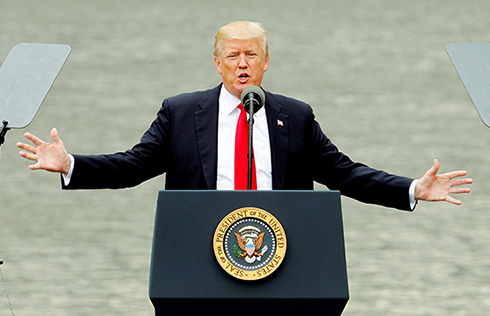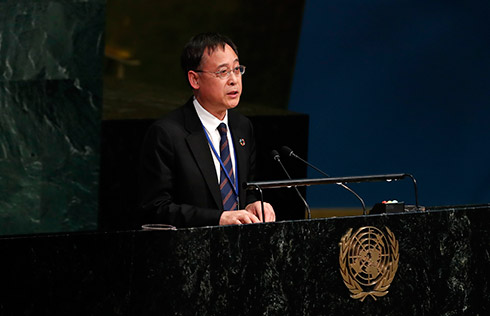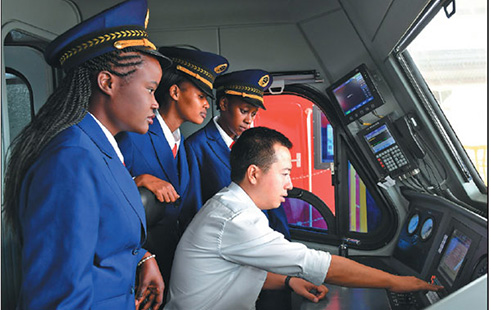Trade talks seek less geopolitics
The 17th round of negotiations for the Regional Comprehensive Economic Partnership (RCEP) kicked off in Kobe, Japan on Monday, as experts called for a lessening of the geopolitics of the free trade deal.
The RCEP, first launched in 2012, has often been described in the United States as a rival regional free trade agreement to the Trans-Pacific Partnership (TPP), which US President Donald Trump announced the country's withdrawal from on Jan 23, three days after his inauguration.
RCEP includes China, the 10-nation ASEAN (Association of Southeast Asian Nations), Japan, South Korea, India, Australia and New Zealand.
The participating countries have so far broadly agreed on two fields: economic and technological cooperation, in which advanced countries will pledge to provide assistance to emerging economies; and rules on small and midsize companies, according to Japanese newspaper Yomiuri Shimbun.

The Kobe meeting will discuss 13 fields through Friday, such as common rules on investment and e-commerce, as well as elimination or reduction of trade tariffs.
President Barack Obama's administration had seen RCEP as a Chinese counterbalance to the US-led TPP between the US and 11 other Pacific Rim economies.
China is not a party in TPP, while the US has not participated in RCEP negotiations. Seven countries - Australia, Brunei, Japan, Malaysia, New Zealand, Singapore and Vietnam - are in both TPP and RCEP.
Vinod Aggarwal, director of the Berkeley APEC Study Center at the University of California, Berkeley, said that the notion that RCEP is a China-led agreement is misleading. "RCEP was initiated by ASEAN," he said in Washington on Monday.
"So, this whole idea of seeing everything as a bipolar struggle is what I objected to," he told a conference at the Brookings Institution.
Aggarwal said that the notion that TPP is a critical counterbalance to RCEP was heavily oversold in the US. He rebuked former US defense secretary Ash Carter's remarks of comparing TPP to another aircraft carrier.
"If that's the case, we have too many aircraft carriers," Aggarwal said.
Gerald Rose, an editor of the Economic Intelligence Review, also called for an end to seeing and using free trade agreements as a geopolitical game. "If we think right, if we don't play geopolitics, we can move into a whole new array of potentials," he said.
Takashi Terada, a professor at Doshisha University of Japan, said the ongoing RCEP negotiations might be useful in putting pressure on the US to reconsider the Trump administration's trade policy.
chenweihua@chinadailyusa.com
(China Daily USA?02/28/2017 page2)



























